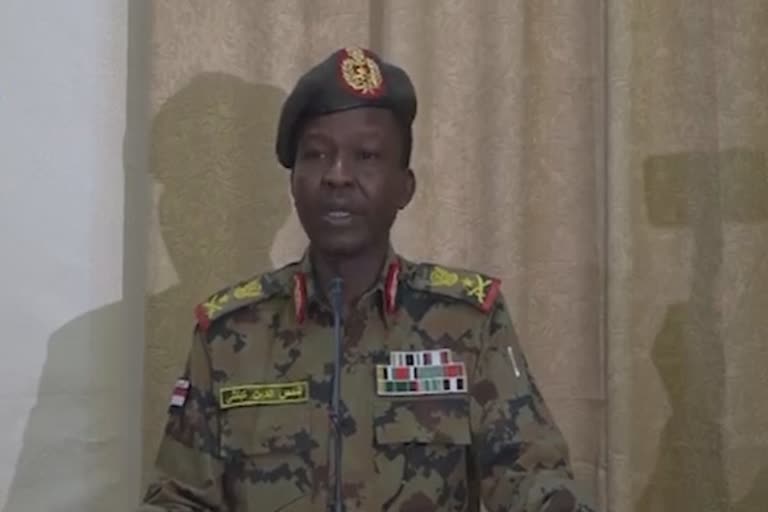Khartoum:Sudan's ruling military council met Wednesday with the organizers of the protests that toppled President Omar al-Bashir after they had suspended talks with the generals over the weekend.
The council said in a statement before the meeting that it was willing to discuss proposals from the coalition of groups behind the protests for an immediate transfer of power to a transitional civilian government.
The Sudanese Professionals Association and its allies, who organized the four months of demonstrations that drove al-Bashir from power on April 11, accepted the invitation and met with the council, an SPA spokesperson said.
Also Read: 51 people killed in South Africa floods
The military council later said three of its members resigned on Wednesday.
A military spokesman, Lt. Gen. Shamseldin Kibashi, said after the meeting that Lt. Gen. Omar Zain al-Abdin, the council's chief negotiator, and two officers on a council-affiliated political committee, submitted their resignations.
He identified the other two as Lt. Gen. Jalal el-Din el-Sheikh, deputy head of the infamous National Intelligence and Security Services, and Gen. el-Tayeb Babiker, the county's police chief.
Also Read: Blast in northwestern Syria kills at least 16
The Sudanese Professionals Association had said that Zain al-Abdin was the head of al-Bashir's party within the military and was "trying to bring back the deposed regime."
The spokesman said the military council agreed with the protest leaders to create a joint committee to tackle the political disputes.
The military council has said it is in talks with all Sudan's political parties to name a prime minister and civilian government to run the country for two years.
The Sudanese Professionals Association has instead called for the formation of a legislative council, which would draft laws and oversee a Cabinet of technocrats until a new constitution is written.
Even after President Bashir had to relinquish power that he had held for long 30 years, following revolutionary protests by Sudanese people - Sudan's problems are far from over. There is no civilian government. Power is in the hands of an interim military council.
People of Sudan are now protesting to get the military council to hand over power to a civilian government. But it seems the military is in no hurry. Though it was forced to sit with the protest leaders and was reported to have asked them to name a Prime Minister and other leaders who can run the country for two years.
Meanwhile some countries say there should be elections to elect a democratic government. The protestors protest here too. They say the opposition parties are in disarray, they were supressed for thirty years. So if elections are held it is Bashir's party that will win again because only they have the organization.
New players have also arrived on the scene. Saudi Arabia and UAE want to give substantial aid to Sudan now, which the Sudanese people view with suspicion. They fear the aids will help the military to hold onto power, because people believe Saudi Arabia and UAE do not want a democratic government in Sudan, they would prefer an autocratic government. The fear is not unfounded. It is in the interests of Saudi and Emirates monarchies that no democratic movements result in democratic governments in the region, the protestors fear. They have seen it in Egypt. So the protestors say that they would rather have improper and insufficient food than have Saudi and UAE aids.
The US has little interests in Sudan, so it may not play a big role in the establishment of a democratic government soon. Though an American envoy said in Sudan that they want a peoples' government.
The main fear of the Sudanese people appears to be about the role of the military council. Whether it will help a quick transition of power to people or hold on to power for more time, is something that is bothering the Sudanese. If that happens, then the revolutionary protests become a sheer waste of efforts.
Even if power comes to people, the civilan leaders of the new government will have before it the formidable task of rebuilding Sudan's economy and bring order in the country.
